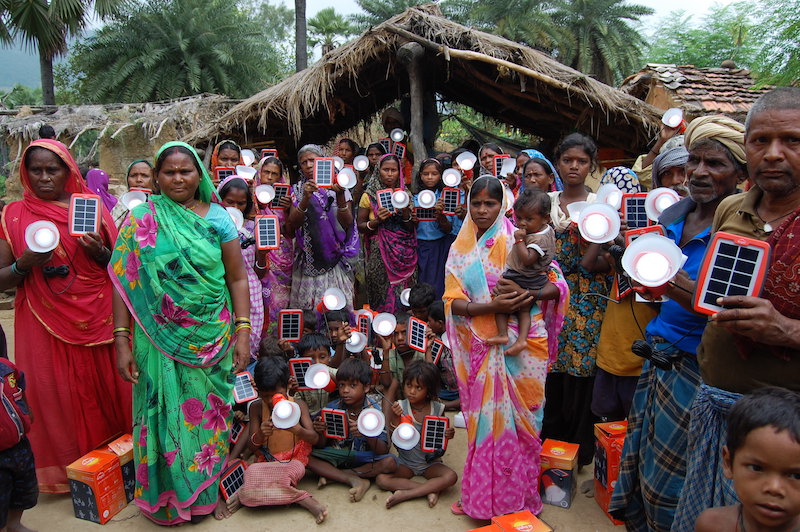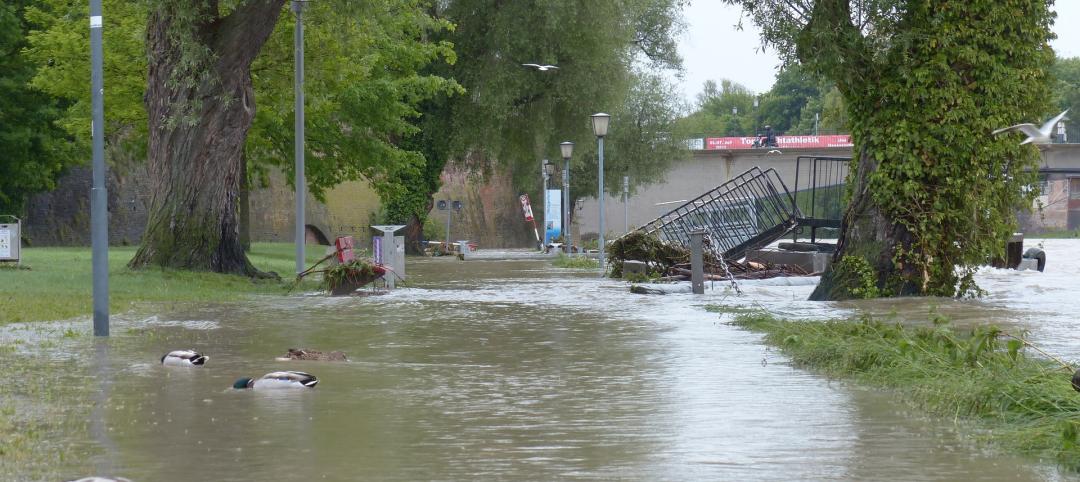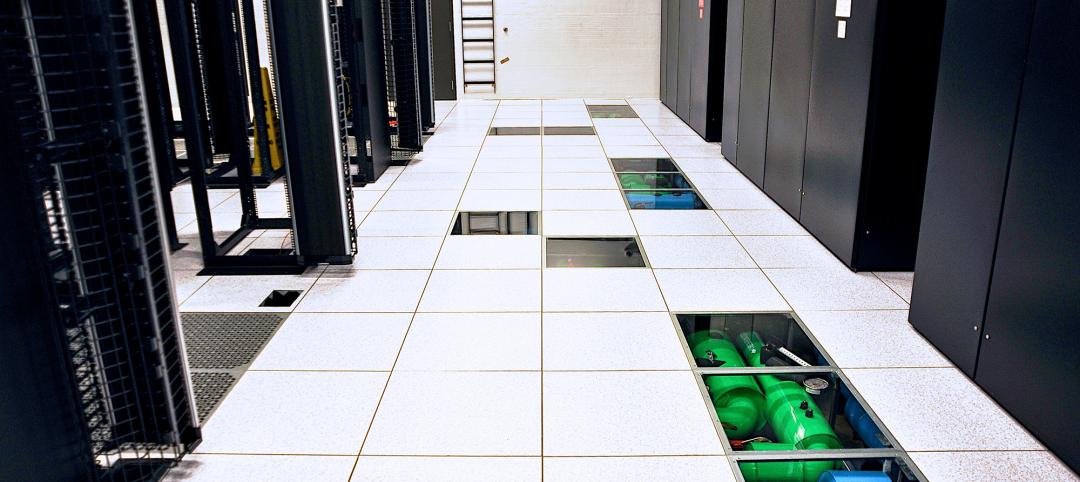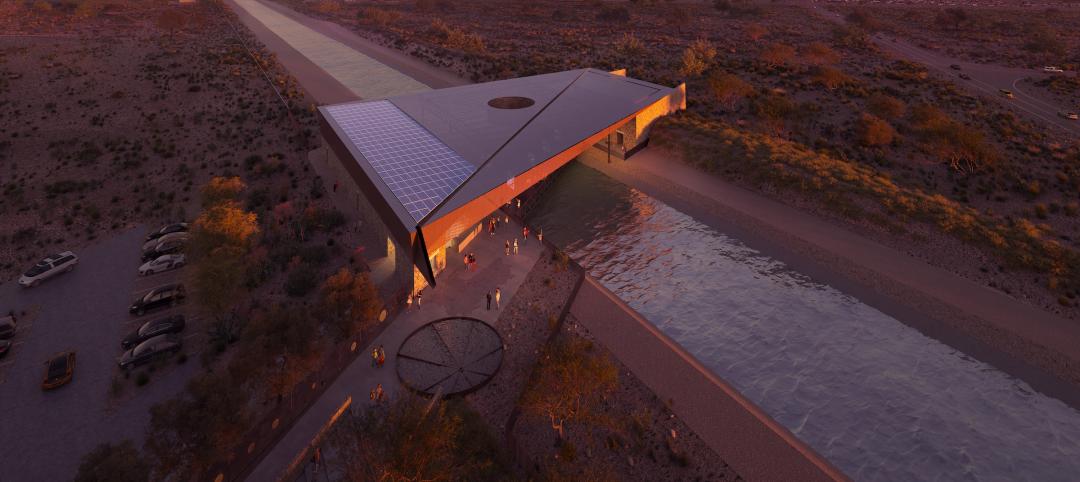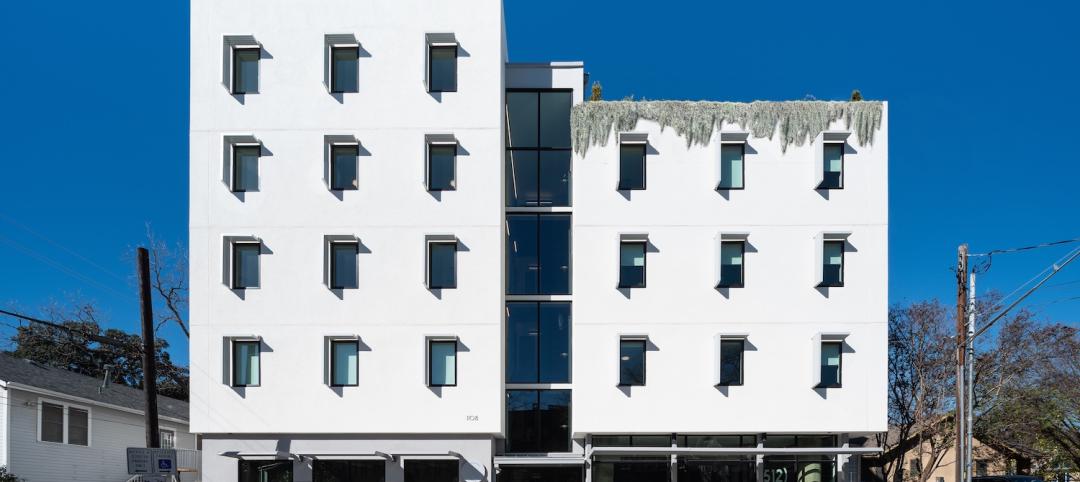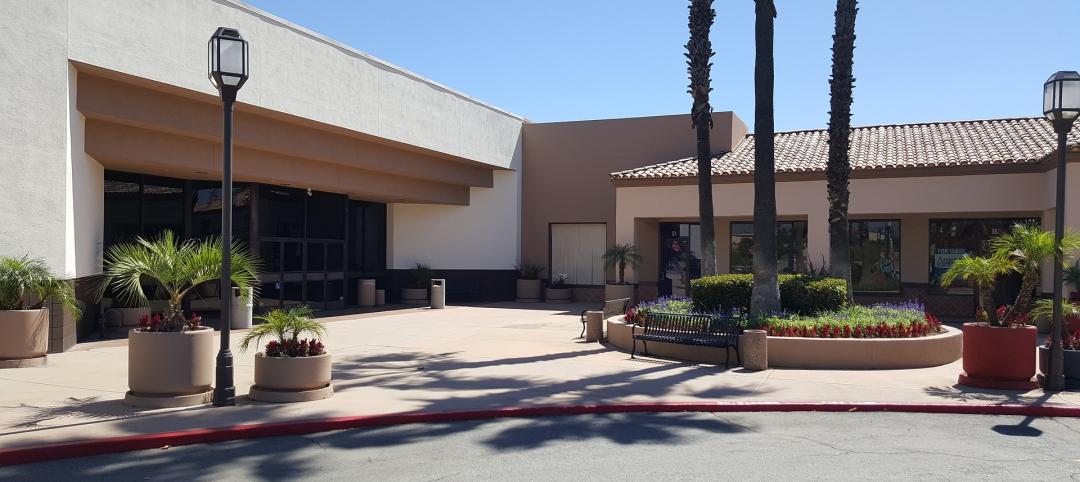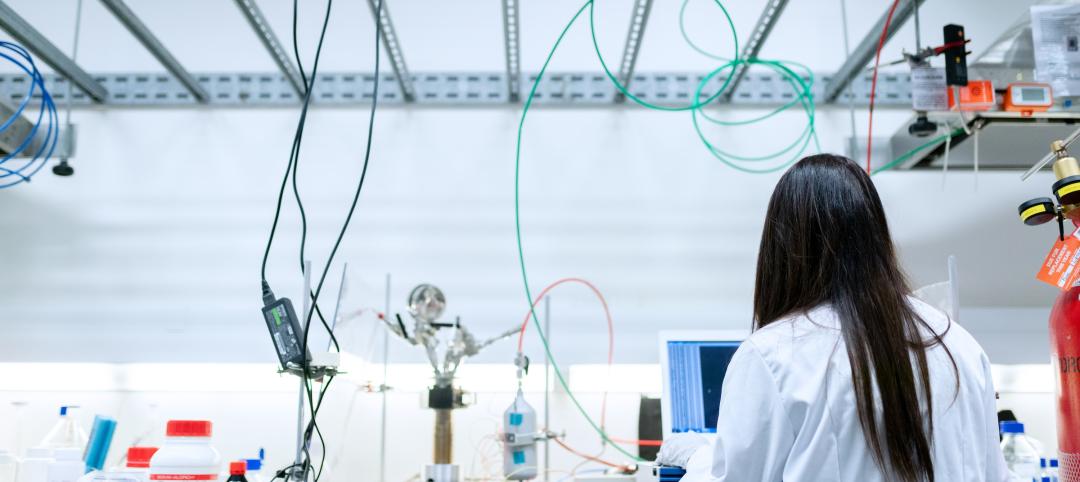AEC firms always talk about how they want their work to “change the world.” One firm, AECOM, is taking corporate responsibility to another level by providing financial support that empowers its employees to tackle humanitarian, environmental, and infrastructure challenges around the world.
AECOM’s inaugural Blueprint Travel Grant program, which it launched last month, awarded 25 grants to support projects that range from the installation of solar-powered water purification systems, to the design and construction of educational facilities in rural communities. This impact initiative spans 15 countries, with the purpose of bringing lasting, scalable solutions to communities and people in need.
The countries include Cambodia, China, Ecuador, El Salvador, Ghana, Guatemala, India, Kenya, Malaysia, Nepal, Panama, Philippines, Tanzania, Thailand, and Uganda.
While AECOM did not disclose its financial commitment to this program, it did state that it is making donations directly to nonprofit partners, for specific campaigns or projects, “to champion our employees’ participation in a skills-based volunteer trip service,” says Brendan Ranson-Walsh, the firm’s Vice President of Global Communications and Corporate Responsibility.
Responding by email to BD+C’s questions, Ranson-Walsh says that this program is the “cornerstone” of AECOM’s corporate responsibility platform Blueprint for a Better World, which has three core pillars: opening doors, creating opportunity, and protecting tomorrow.
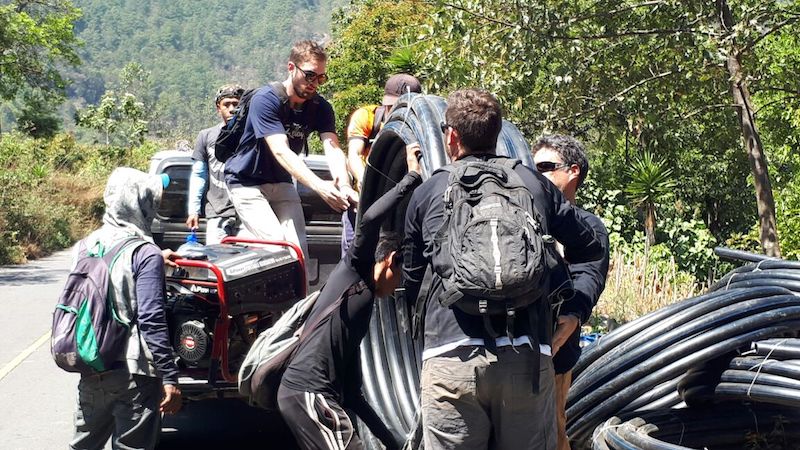
AECOM employees help load a section of pipe for transport to the work site in the nearby mountains in Chacayá, Guatemala, a small, Mayan village where coffee farming is the predominant industry. Weighing over 120 pounds each, the 100-meter rolls of pipe presented a significant challenge in hauling them up the steep mountain trail for installation. The community organized teams of 20 people to haul and install three-four rolls per day. Image: AECOM
Examples of the projects that AECOM’s employees are engaging, with the firm’s support, include:
•A team that’s partnering with Engineers Without Borders USA to design, engineer, plan, and construct a vehicular and pedestrian bridge for a Mayan community in Chimaltenango, Guatemala. The bridge would provide better access to the community, lower transportations costs, and improve medical response time for more than 1,200 residents.
•A team from 10 of AECOM’s offices in three countries is working with Building Humanity to construct a bakery for the Felix Family Village in Surat Thani, Thailand. That village supports orphaned and abandoned children, including those who have lost parents to HIV/AIDS. The bakery will provide food and extra income to the orphanage.
•Two AECOM employees are partnering with Engineers Without Borders Kenya to design and construct safe ecological sanitation facilities at the Inchuni Primary School in Kisii County, Kenya. The new facilities will address the school’s substandard and unhygienic sanitation infrastructure, and prevent the displacement of more than 500 students and faculty members.
“Through the transformational projects they deliver, our people are the driving force behind AECOM’s positive impact in communities around the world,” says Mike Burke, the firm’s Chairman and CEO.
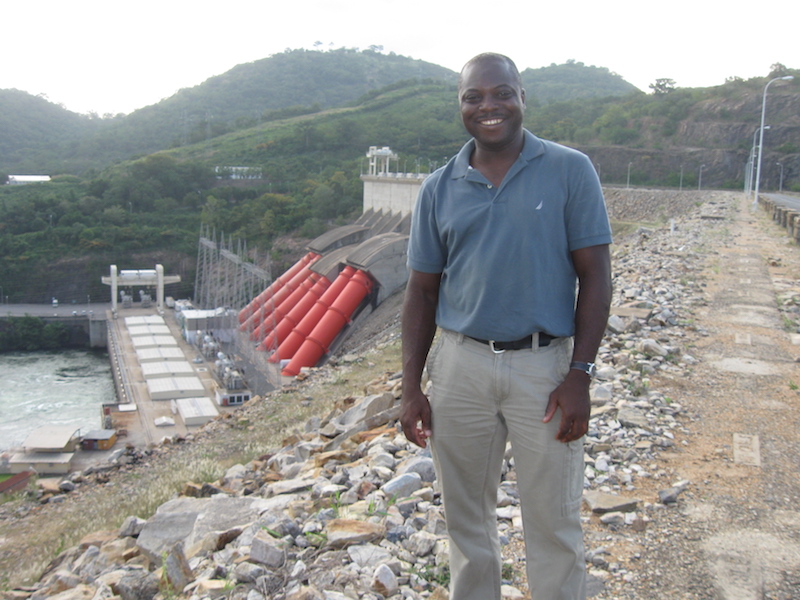
Edmund “Eddie” Doku, Project Engineer II, Design & Consulting Services, at a water and sanitation project in Ghana. Eddie has been volunteering with Engineers Without Borders USA since 2011. Image: AECOM
Related Stories
Market Data | Nov 27, 2023
Number of employees returning to the office varies significantly by city
While the return-to-the-office trend is felt across the country, the percentage of employees moving back to their offices varies significantly according to geography, according to Eptura’s Q3 Workplace Index.
Resiliency | Nov 27, 2023
All levels of government need to act to cope with climate-driven flooding and sea level rise
The latest National Climate Assessment highlights the need for local, state, and federal governments to adopt policies to mitigate the effects of climate-driven flooding and sea level rise, according to a policy expert with the National Resources Defense Council.
Data Centers | Nov 22, 2023
How is artificial intelligence impacting data center design?
As AI is reshaping how we interact with machines and the world around us, the design of data centers needs to adapt to this fast-changing landscape. So, Page pairs expert thinking with high-performing solutions to meet the needs of rapidly advancing technologies.
Cultural Facilities | Nov 21, 2023
Arizona’s Water Education Center will teach visitors about water conservation and reuse strategies
Phoenix-based architecture firm Jones Studio will design the Water Education Center for Central Arizona Project (CAP)—a 336-mile aqueduct system that delivers Colorado River water to almost 6 million people, more than 80% of the state’s population. The Center will allow the public to explore CAP’s history, operations, and impact on Arizona.
MFPRO+ New Projects | Nov 21, 2023
An 'eco-obsessed' multifamily housing project takes advantage of downtown Austin’s small lots
In downtown Austin, Tex., architecture firm McKinney York says it built Capitol Quarters to be “eco-obsessed, not just eco-minded.” With airtight walls, better insulation, and super-efficient VRF (variable refrigerant flow) systems, Capitol Quarters uses 30% less energy than other living spaces in Austin, according to a statement from McKinney York.
MFPRO+ News | Nov 21, 2023
California building electrification laws could prompt more evictions and rent increases
California laws requiring apartment owners to ditch appliances that use fossil fuels could prompt more evictions and rent increases in the state, according to a report from the nonprofit Strategic Actions for a Just Economy. The law could spur more evictions if landlords undertake major renovations to comply with the electrification rule.
Codes and Standards | Nov 21, 2023
Austin becomes largest U.S. city to waive minimum parking requirements
Austin, Texas recently became the largest city in the United States to stop requiring new developments to set a minimum amount of parking. The Austin City Council voted 8-2 earlier this month to eliminate parking requirements in an effort to fight climate change and spur more housing construction as Texas’s capitol grapples with a housing affordability crisis.
MFPRO+ News | Nov 21, 2023
Underused strip malls offer great potential for conversions to residential use
Replacing moribund strip malls with multifamily housing could make a notable dent in the housing shortage and revitalize under-used properties across the country, according to a report from housing nonprofit Enterprise Community Partners.
Giants 400 | Nov 16, 2023
Top 70 Science + Technology Facility Engineering Firms for 2023
Jacobs, Fluor, SSOE, Tetra Tech, and Affiliated Engineers head BD+C's ranking of the nation's largest science and technology (S+T) facility engineering and engineering/architecture (EA) firms for 2023, as reported in Building Design+Construction's 2023 Giants 400 Report. Note: This ranking factors revenue from all science and technology (S+T) buildings work, including laboratories, research buildings, technology/innovation buildings, pharmaceutical production facilities, and semiconductor production facilities.
Retail Centers | Nov 15, 2023
Should retail developers avoid high crime areas?
For retailers resolute to operating in high crime areas, design elements exist to mitigate losses and potentially deter criminal behavior.


